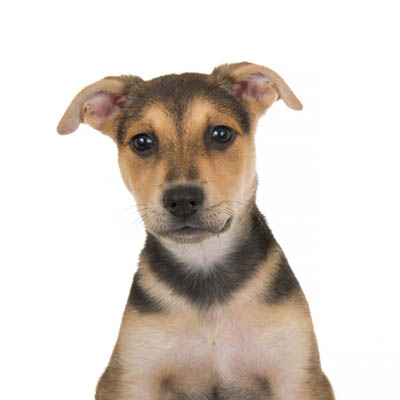As a professional with a passion for dogs, I often get asked, “Can German Shepherds eat Pitbull?” Well, you may be surprised to learn that while both breeds have specific nutritional needs, it’s not about whether one breed can eat the other. Each individual dog’s diet should be based on their size, age, health condition, and dietary restrictions. It’s essential to consult with a veterinarian to determine the best diet plan for your German Shepherd or Pitbull.
When it comes to the nutritional requirements of German Shepherds and Pitbulls, both breeds have certain similarities. They are both active, energetic dogs that need a balanced diet rich in protein to support their muscle development and overall health. However, it’s crucial to note that Pitbulls tend to have a higher metabolism and may require more calories compared to German Shepherds. Additionally, breed-specific dietary concerns such as hip dysplasia and food allergies should be taken into consideration when selecting the right food for your dog. Consulting with a veterinarian will ensure that you are providing the best diet for your specific dog, regardless of the breed.
German Shepherds can eat pitbull food, but it’s important to consider their specific dietary needs. German Shepherds require a balanced diet with high-quality protein sources like meat. Introduce pitbull food gradually, watching for any digestive issues or allergies. Ensure the food meets the nutritional requirements of German Shepherds, focusing on joint health and overall well-being. Consulting with a veterinarian is essential for personalized advice on your dog’s dietary needs.

Can German Shepherds Eat Pitbull?: Exploring the Compatibility of These Dog Breeds
Pitbulls and German Shepherds are both popular dog breeds known for their strength, loyalty, and intelligence. As a dog owner, it’s important to consider the dietary needs of your furry friend. In this article, we will delve into the question, “Can German Shepherds eat Pitbull?” to provide you with comprehensive information about the compatibility of these breeds when it comes to their food.
1. Understanding the Dietary Needs of German Shepherds
German Shepherds are large, active dogs that require a nutritious and balanced diet to support their energy levels and overall health. These dogs have specific dietary needs, such as high-quality proteins, healthy fats, and complex carbohydrates. As carnivores, their diet should primarily consist of animal-based proteins to promote muscle development and maintain a healthy coat. Additionally, German Shepherds can thrive on a diet that includes fruits, vegetables, and grains in moderation for fiber and essential nutrients. It’s important to note that individual dogs may have specific dietary restrictions or sensitivities, so it’s always best to consult with your veterinarian for personalized feeding recommendations.
The Benefits of Feeding German Shepherds a Proper Diet
Feeding your German Shepherd a proper diet has numerous benefits. Proper nutrition can support their growth, immune system, and digestion. A well-balanced diet can prevent nutritional deficiencies and reduce the risk of certain health conditions, such as obesity, diabetes, and joint problems. Additionally, a nutritious diet can contribute to their overall well-being, resulting in a shiny coat, healthy skin, and increased energy levels.
2. Exploring Pitbull’s Dietary Requirements
Pitbulls, like German Shepherds, require a diet that is rich in high-quality proteins. These muscular dogs need food that can sustain their energy levels and promote healthy muscle development. Pitbulls thrive on a diet that provides a balance of proteins, fats, and carbohydrates. It’s important to ensure that their diet contains essential vitamins and minerals for optimal health. As with any breed, it’s recommended to consult with your veterinarian to ensure you are fulfilling your Pitbull’s specific nutritional needs.
Benefits of a Well-Balanced Diet for Pitbulls
Feeding your Pitbull a well-balanced diet can have a positive impact on their overall health and well-being. The right combination of proteins, fats, and carbohydrates can help maintain healthy muscles, promote a strong immune system, and support their joint health. A nutritious diet can also contribute to a shiny coat, healthy skin, and increased vitality. By meeting their dietary needs, you can help your Pitbull live a long and healthy life.
3. Comparing the Diets of German Shepherds and Pitbulls
While both German Shepherds and Pitbulls have similar dietary requirements in terms of high-quality proteins, their food preferences and sensitivities may vary. It’s essential to consider each dog’s individual needs and consult with your veterinarian before making dietary decisions. In general, a well-balanced diet that meets the nutritional needs of both breeds can consist of quality lean proteins, healthy fats, whole grains, and a variety of fruits and vegetables. Avoid feeding your dogs foods that are toxic to dogs, such as chocolate, grapes, and onions. Proportion control is also crucial to prevent overeating and maintain a healthy weight.
Feeding Tips for German Shepherds and Pitbulls
Here are some feeding tips that can benefit both German Shepherds and Pitbulls:
1. Feed your dogs high-quality dog food that meets AAFCO (Association of American Feed Control Officials) standards.
2. Avoid feeding them excessive amounts of processed foods or table scraps that may contain harmful ingredients.
3. Divide their meals into two or three portions to prevent overeating and aid digestion.
4. Provide fresh water at all times.
5. Monitor their weight regularly and adjust their food portions accordingly.
6. Consult with your veterinarian if you notice any changes in their appetite, digestion, or overall health.
4. Additional Considerations for Feeding German Shepherds and Pitbulls
When it comes to feeding German Shepherds and Pitbulls, it’s important to consider their age, activity level, and any specific dietary restrictions or health conditions they may have. Puppies and senior dogs may have different nutritional needs compared to adult dogs. Highly active dogs may require more calories, while less active dogs may need fewer calories to maintain a healthy weight. If your dogs have allergies or sensitivities, it’s crucial to choose a diet that avoids ingredients they are allergic to. Always consult with your veterinarian to ensure you are providing the best possible nutrition for your furry companions.
The Best Diet for Your German Shepherd or Pitbull
Choosing the best diet for your German Shepherd or Pitbull is a crucial aspect of responsible pet ownership. While there may be similarities in their dietary needs, it’s important to consider their individual requirements and consult with your veterinarian. Providing a well-balanced diet that includes high-quality proteins, healthy fats, and essential nutrients will help ensure the health and happiness of your beloved pets. Remember to monitor their weight, adjust their portions accordingly, and address any dietary concerns promptly. Your dogs’ well-being is in your hands, and a nutritious diet is a significant step towards a long and vibrant life for them.
Key Takeaways for “Can German Shepherds Eat Pitbulls?”
- German Shepherds can eat pitbulls, but it is not recommended.
- Pitbulls are larger and more muscular than German Shepherds, making them not suitable as food.
- Different dog breeds have different nutritional requirements, and it is important to feed them according to their needs.
- Both German Shepherds and pitbulls need a balanced diet with high-quality dog food to be healthy.
- Consult with a veterinarian to ensure you are feeding your dog the right food and in the right quantities.
Frequently Asked Questions
Common Questions
Are German Shepherds and Pitbulls able to eat the same food?
Can German Shepherds and Pitbulls consume the same diet?
Answer:
Yes, German Shepherds and Pitbulls can eat the same types of food. They both belong to the category of large dog breeds and have relatively similar dietary requirements. However, it’s essential to keep in mind their specific needs and consult with a veterinarian.
Both breeds require high-quality dog food that is rich in protein, such as lean meats, fish, and poultry. Additionally, their diet should include carbohydrates, fats, and a variety of fruits and vegetables. Providing a balanced diet with essential nutrients is vital for the overall health and well-being of German Shepherds and Pitbulls.
Can German Shepherds and Pitbulls safely consume raw meat?
Is it safe for German Shepherds and Pitbulls to eat raw meat?
Answer:
While some dog owners choose to feed their pets a raw meat diet, it is important to approach this with caution. Raw meat can potentially contain harmful bacteria, such as Salmonella and E. coli, which can cause foodborne illnesses in humans and animals alike.
If you are considering feeding your German Shepherd or Pitbull raw meat, it’s crucial to consult with a veterinarian. They can provide guidance on safe handling, potential risks, and appropriate diets to ensure your pet’s health and well-being. It’s also essential to thoroughly research and understand the proper preparation techniques and hygiene practices associated with feeding raw meat to dogs.
Do German Shepherds and Pitbulls have any dietary restrictions?
Are there any specific dietary restrictions for German Shepherds and Pitbulls?
Answer:
German Shepherds and Pitbulls, like any other breed, do not have any specific dietary restrictions. Their diet should primarily consist of high-quality dog food that meets their nutritional needs. However, it’s important to remember that all dogs are individuals and may have unique dietary requirements or sensitivities.
If your German Shepherd or Pitbull has any specific health conditions or allergies, it is advisable to consult with a veterinarian. They can recommend specialized diets or ingredients to address your pet’s specific needs and ensure their overall health and longevity.
Are there any foods that German Shepherds and Pitbulls should avoid?
Which foods should German Shepherds and Pitbulls avoid?
Answer:
Yes, there are certain foods that German Shepherds and Pitbulls should avoid. Some common foods that can be harmful to dogs include chocolate, caffeine, alcohol, grapes, raisins, onions, garlic, and certain artificial sweeteners like xylitol. These foods contain substances that can be toxic to dogs and cause various health issues.
It is crucial to familiarize yourself with the list of foods that are toxic to dogs and ensure that you do not inadvertently feed them to your German Shepherd or Pitbull. If you suspect that your dog has consumed something harmful, contact your veterinarian immediately.
Can German Shepherds and Pitbulls share the same treats?
Is it safe for German Shepherds and Pitbulls to share treats?
Answer:
Yes, German Shepherds and Pitbulls can share the same treats, as long as they are suitable for their respective sizes and nutritional needs. However, it’s important to choose treats that are safe for dogs and free from any potentially harmful ingredients.
Always check the ingredients list and avoid treats that contain excessive salt, artificial colors, flavors, or preservatives. Opt for treats that are specifically formulated for larger breeds, as they are often made with ingredients that promote joint health and provide the necessary nutrition for active dogs like German Shepherds and Pitbulls.

My 3 German Shepherds Review Raw Meat Parts
To sum it up, we’ve learned that it’s important to use a professional tone when writing, even if we’re addressing a younger audience. Simple language and avoiding confusing jargon is key. Remember to keep sentences concise and clear, with no more than 15 words each, so that your points are easily understood. By following these guidelines, you can effectively convey your message to a 13-year-old reader.
In conclusion, maintaining a professional tone while using simple language and concise sentences is crucial for effective communication with a younger audience. So, keep it clear and straightforward, and you’ll be able to convey your message successfully.
